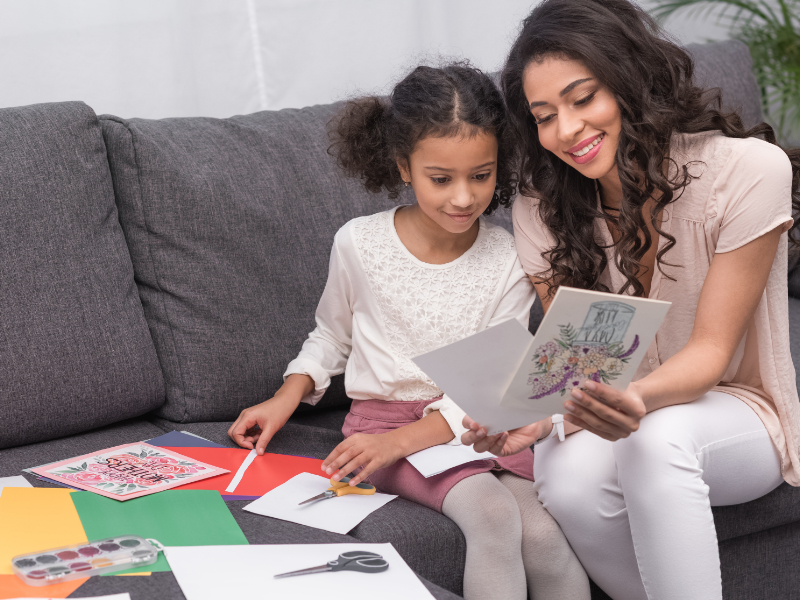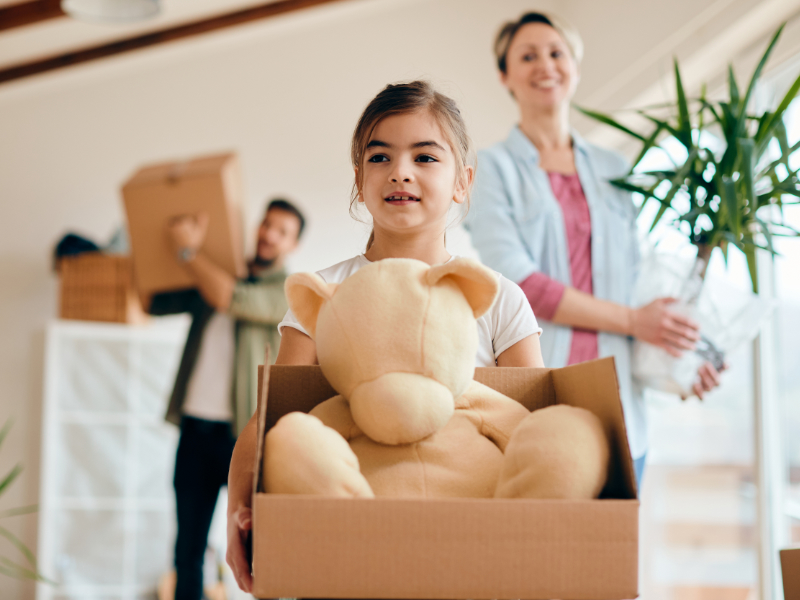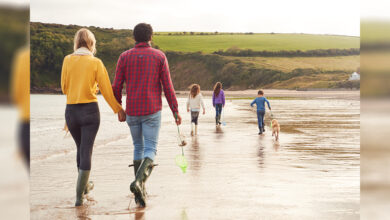The Family Unit
Reducing Moving Anxiety for You and Your Children
Posting season for many of us is just around the corner which can increase the anxiety in every household in one way or another no matter how flexible and adventurous your  family is.
family is.
I try not to do a lot of guess work as it usually ends up stressing me right out (and I am usually wrong) but it is hard not to think about being posted as it is our reality. Moving with children complicates things further because your children have planted roots in their schools, with friends and may not look at it as a positive adventure.
If you have a child with special needs or a complicated medical history the stresses are more challenging. The only thing that you will know for certain is that you are moving and possibly leaving behind many of the support systems that kept you sane and your children thriving.

Moving Tips
Since I have moved more than a couple of times, both before and after children, I have created the following tips to help reduce the stress and anxiety of moving.
- Make sure that your family members hear the news from you and when you tell them make sure you have time to sit with them (distraction free) and talk about it.
- Avoid discussing a move until you have the papers ‘in your hand’ and the name of where you are going and can say at least a few positive things about it.
- Make the move feel more like an adventure for your kids – set goals for them, challenges, quests to discover information about your new community.
- Give your family members opportunities to make some decisions too. When you are posted, your entire family can feel powerless to do anything – giving them a say in even small things will help them feel they have some control.
- Research your new neighbourhood and community so that you can talk openly, honestly, and factually about the changes that will be happening and the good and bad things about their new home.

- Keep a scrapbook, log or journal of the move. This way you (and they) are able to process what is happening and what you are feeling and you can record the funny and sad moments to reflect on later when you have finally moved and settled in. This may be a great project for an older child.
- Take pictures throughout your move, particularly on the house hunting trip. Don’t just take them of your new home but also of the local parks, mall, schools, sports centres, etc. Pictures are worth a thousand words they say.
- Use your move as a chance to sort out and re-organize yourselves. Have your kids go through their toys, books, clothes, sports equipment, etc. A good rule of thumb is if you haven’t used it since your last posting you may never notice it’s gone! Have a ‘We’re Moving Garage Sale’ to try and reduce any clutter. Clutter and disorganization are the enemies in a move and can result in a lot of additional and unnecessary anxiety.
- Give your children and yourselves one box or suitcase to put things in that you will want to access throughout the move and have close by. It is a great way to see what is important and essential to your life and to that of your family members. You can be sure that some of the items that are most important to your kids will also be things of comfort to them as well.
- Don’t brush off worries or fears that you kids express to you. It is easy to say that there will be bigger or better things where you are going but that doesn’t help in the moment and may not end up being true. Try being open about how change can be challenging and scary but also exciting and opens up possibilities that they wouldn’t otherwise have known about. Be as positive as possible (fake it until you make it theory) as your children are looking to you for direction and reassurance. If you are confident and calm they will be too.

More Moving Tips
While moves are stressful for all families, when you have a child with special needs or medical concerns it can be more so.
These suggestions may help:
- Photocopy the last report card, IEP, and other professional assessments and reports (occupational therapy, physical therapy, psychology, etc.) and keep these in a clearly marked file. Do not pack them with the movers.
- If you are buying a home, let your real estate agent know what services and supports your family needs as they are often very aware of the best areas, schools, hospitals and care centers nearby.
- Once you have decided where you are living, visit the schools in your area and go to their websites. Make an appointment to see the school and meet with a member of staff (on your house hunting trip if possible).
- Once you get your posting message, let those working with your children know so that they can write an up to date letter or report about your child to support you with accessing similar services in your new community.

- Take pictures of the new school – inside and out to familiarize your child with some common areas he/she will be using.
- Ask your current physician if they can recommend a family doctor in your new community and if they are able to make referrals.
- Research what community care is available to you and your family and contact them prior to moving as they may only meet quarterly to review cases and it will be helpful to get on their radar.
- Prepare yourself for some regression – children who rely on consistency and routine will struggle with change – don’t panic if old behaviours resurface. Remind yourself that your children will soon adjust and grow through this experience.

Keep Calm and Carry On
Ultimately, you can be as prepared and organized as Martha Stewart and still feel the panic and anxiety that comes with change and the unknown. When you are outwardly calm and positive your children will tend to be that way also. By putting some preventative measures in place, you will be doing your family a huge favour and yourself too.










